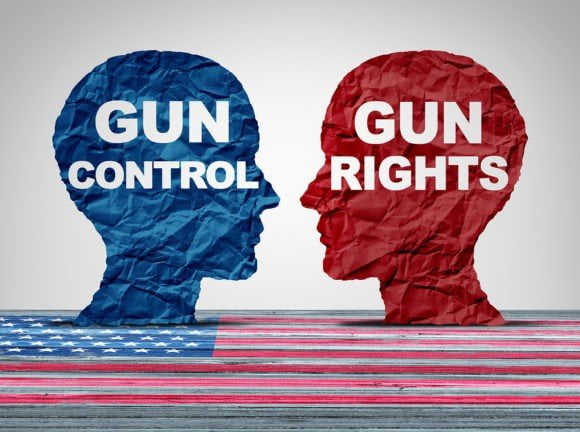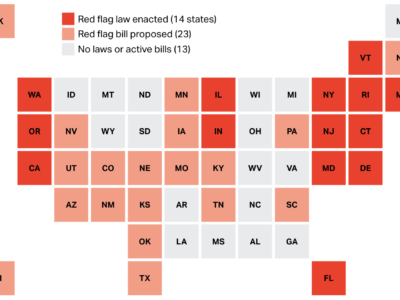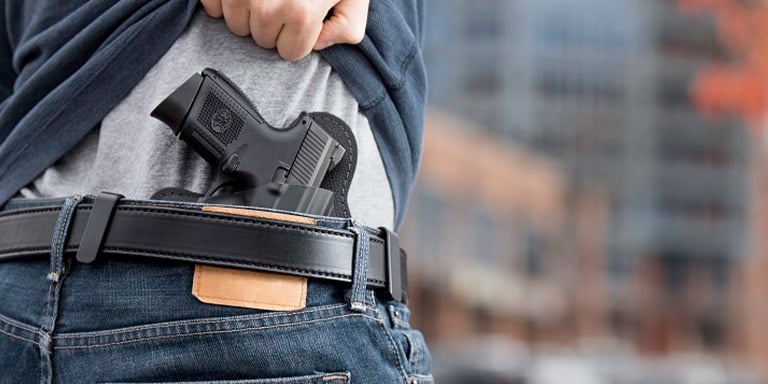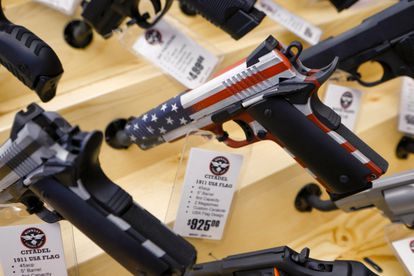Common Sense Gun Laws
The current state of US federal gun laws has led to numerous unanswered questions and concerns, igniting debates and discussions among advocates and policymakers. To promote public safety and reduce gun-related crimes, gun advocates have proposed a series of common-sense laws that aim to address the existing loopholes and enhance the effectiveness of current regulations.
This article delves into some of the key issues surrounding US federal gun laws and examines the proposed common-sense solutions.
Background Checks: A Closer Look
Understanding Universal Background Checks
One of the most crucial elements of the common-sense gun law agenda is the implementation of universal background checks. Currently, private sales of firearms, including those at gun shows, do not require the same level of scrutiny as sales through licensed dealers. This private sale loophole has been a point of contention and is seen as a potential avenue for criminals to obtain firearms without undergoing proper background checks.
The Efficacy of Background Checks
The concept of background checks for gun buyers gained traction after the assassination attempt on President Ronald Reagan in 1981. In response to the incident, Congress passed legislation in 1994 mandating federal background checks for gun purchases.
Since then, the FBI has processed millions of applications and denied a substantial number of them based on disqualifying factors such as criminal history, mental illness, or illegal immigration status.
Limitations and Challenges
While background checks serve a significant purpose in preventing certain individuals from acquiring firearms, there are limitations to their efficacy. The “gun show loophole” allows private sellers to bypass background checks, making it easier for potential buyers with malicious intent to obtain guns without proper vetting.
Additionally, the checks may not delve deep enough into an individual’s mental competence, potentially missing critical information that could indicate instability.
Reinstate the Assault Weapons Ban
The Historical Context
The debate over the assault weapons ban dates back to 1994 when Congress passed a ten-year ban on certain military-type features and high-capacity magazines. However, the lack of a clear definition for “assault weapons” and various loopholes in the law hindered its overall effectiveness.
Evaluating the Ban’s Impact
While the ban seemed to have a positive impact on reducing casualties from mass shootings during its implementation, it is challenging to attribute this solely to the ban. Most gun crimes were committed with firearms that were not affected by the ban, leading to debates about its true effectiveness.
Possibility of Tightening Loopholes
Some gun control advocates argue that the assault weapons ban could be revisited and improved upon by closing existing loopholes and implementing more comprehensive regulations. Comparisons with successful gun control measures in other countries, like Australia, provide a basis for potential improvements in US gun laws.
The Social Security Gun Ban: Addressing Mental Health Concerns
Obama’s Initiative
During Obama’s presidency, a law was introduced to prevent mentally disabled individuals from purchasing firearms. The law required the Social Security Administration to submit records of mentally disabled people to the National Instant Criminal Background Check System.
Congress’s Repeal
Despite the initial efforts to address mental health concerns, Congress later repealed the law, citing practical challenges and concerns over potential infringement on the Second Amendment rights of disabled individuals.
Debating Mental Competence and Access to Firearms
The common-sense gun law agenda advocates for a more comprehensive approach to prevent mentally unstable individuals from acquiring guns. The argument is that those who are incapable of managing their personal affairs should not have access to firearms.
Conclusion
The state of US federal gun laws has raised numerous questions and concerns regarding public safety and the accessibility of firearms to dangerous individuals. Common-sense solutions, such as universal background checks and reinstating the assault weapons ban, have been proposed to address these issues.
While there are challenges and debates surrounding the effectiveness of these solutions, it is clear that discussions on gun control must continue to find a balance between protecting the public and preserving Second Amendment rights.
FAQs;
Q1: Are background checks effective in preventing criminals from acquiring firearms?
Background checks serve as a crucial deterrent, but some loopholes, like the “gun show loophole,” still allow individuals to bypass these checks. Stricter regulations may be necessary to improve their effectiveness.
Q2: Why was the assault weapons ban not renewed federally in 2004?
The ban faced challenges, including the lack of a clear definition of “assault weapons” and certain loopholes that limited its impact. Congress left the decision to individual states, and only a few enforced the ban.
Q3: Can the assault weapons ban be improved to be more effective?
Advocates believe that by tightening existing loopholes and addressing shortcomings in the initial ban, it could be more successful in reducing gun violence.
Q4: Why was the Social Security gun ban repealed?
The repeal of the Social Security gun ban was due to concerns over potential infringement on the Second Amendment rights of disabled individuals and practical challenges in its implementation.
Q5: What are the gun laws in Main?
Maine has permitless carry for any person 21 or older (or at least 18 and on active duty or honorably discharged military) who can legally possess a firearm. In addition, Maine also recognizes resident concealed handgun permits issued by another state if that state recognizes Maine’s resident CCHs.
Q6: What is the common-sense gun law agenda’s stance on mental competence and gun ownership?
The agenda argues that mentally incompetent individuals should not have access to firearms. Proper evaluations and reporting mechanisms are essential to prevent potential dangers.








